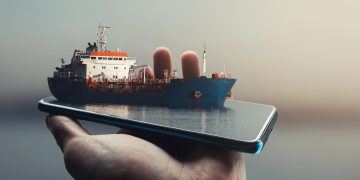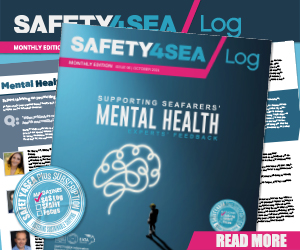Piracy has a serious impact on ports and terminals
Since 2008, the capturing of commercial vessels and their crews by Somali pirates has become an ever increasing threat to international shipping. This threat has had a significant and detrimental effect on the ports surrounding the high risk areas, now encompassing the Gulf of Aden, the Arabian Sea, the Red Sea, the Gulf of Oman and the Indian Ocean.
Around 30,000 ships transit the Gulf of Aden each year but around 10% of this ship traffic now opts to re-route around the Cape of Good Hope, rather than transit the Gulf of Aden and Suez Canal. As a result of the threat of piracy in the high risk region, some countries (and in particular, Kenya, Yemen and the Seychelles) have seen a direct fall-off in trade, which has a corresponding effect on freight and port rates.
On the other side of the Indian Ocean, passage planning to avoid being hijacked or to avoid entering the Joint War Committee listed area is also causing headaches for some ports. As the Somali pirate attacks have extended further and further towards the coast of India, vessels now tend to keep as close to the coast of India as far as possible in order to avoid the risk of attack. However, when following a route within 12 Nautical Miles of the Indian shoreline, it is arguably a much riskier exercise to cut across the entrance to a port like Mumbai than to venture slightly further out into the Indian Ocean.
Routes that are so close to the coastline cross port traffic lanes at positions that are at best unhelpful and at worst dangerous to traffic coming in and out of Indian ports.In addition to the general impact of piracy on ports, there is also a direct threat of piracy that extends right into the ports that surround the high risk area around the Indian Ocean and the Gulf of Aden. This risk was fully realised on 20 August 2011, when Somali pirates sailed a dhow into the port of Salalah and boarded a chemical tanker at anchorage, not more than five nautical miles from the Oman shoreline.
The pirates took the 21 crew members on board hostage and sailed the vessel out of port limits to a holding area off the coast of Somalia. This is a port that has previously been considered a port of refuge for vessels that had been released by pirates after payment of a ransom.Despite the proximity of the port to pirate-infested waters, Salalah was reported to be at ISPS Code Security Level 1 at the time of the incident.
This would mean that only the minimum protective safety measures would have been in place. Certain governments have been limited in their response to their obligations under the SOLAS Convention and ISPS Code, adopting the attitude that terrorists would not have any reason to attack their ports. However, in light of this attack, such attitudes have proved to be short-sighted. The pirates may have no interest in attacking ports themselves but they can take advantage of gaps in security measures to attack commercial vessels.
And although ports may not suffer directly as a result of these attacks, there are indirect consequences that can have a serious impact on ports and terminals. For example, an attack in a national port is likely to damage any tourist industry in the region. There may be an effect on foreign trade if the facilities in national ports that are subject to the ISPS Code have been assessed as, or are suspected of being, non-compliant. International relations between countries may be damaged if a national port is unable to adequately protect foreign vessels.
In principle, there is nothing to stop ship owners and operators advancing claims against port operators if the port has failed to provide adequate security for calling vessels in all the relevant circumstances. In relation to container terminals, for example, there may be express contractual obligations on the port operator to provide adequate security. In the absence of contractual liabilities, a claim may be advanced for breach of the port operator’s duty of care or similar, depending on local laws and regulations.
So there is potential for ports to be held liable if they fail to protect visiting vessels adequately.In light of the dangers that vessels and their crews now face and also in light of the fact that naval forces can only provide a limited degree of protection, increasing numbers of ship owners and operators are resorting to the deployment of privately armed security guards on board their vessels transiting these high risk areas.
However, very few countries have clear guidelines on how armed guards can embark and disembark vessels or how their ports can provide weapons storage facilities. The IMO approved further interim guidance on privately armed security personnel at the intersessional meeting of the Maritime Security and Piracy Working Group of the Maritime Safety Committee in September this year. Circular MSC.1/Circ.1408 was released for dissemination which sets out interim recommendations for port and coastal states regarding the use of armed guards on board ships in high risk areas.
The IMO agreed that ship owners and operators, Masters and private security companies urgently need to know what requirements they must comply with when their vessels with firearms and ammunition on board call at different ports, offshore terminals and anchorages. In particular, West and East African coastal states, as well as the states bordering the Indian Ocean, the Arabian Sea, the Gulf of Aden and the Red Sea, should have clear policies and procedures in place on how firearms and ammunition are permitted to be transited through and stored within their port limits, if such transit, carriage and storage is permitted under national laws at all. Such policies and procedures will help to ensure coordination and coherence between different ministries and government authorities.
Clarity on this issue will also help to avoid situations such as the series of vessel arrests in South Africa last year, where vessels were detained and fined when firearms were declared on board. Vessels with firearms on board are permitted to call at South African ports, as long as the correct declarations are made to the correct authorities. It appears that the declarations may not have been made correctly and the number of arrests points towards the fact that the procedures for making such declarations were not clear at the time.
These situations must be avoided – they undermine the efforts of shipowners and operators to comply with all legal measures to protect their crews and vessels. Furthermore, it is in no one’s interest to make the declaration of firearms and ammunition difficult which might encourage the practice of not declaring weaponry on board vessels at all.
Ports can avoid this problem by introducing clear policies for the embarkation and disembarkation of firearms and security related equipment as well as clear requirements for vessel calls, as the IMO now recognise.
Sally Buckley
Lawyer at Holman Fenwick Willan
This article first appeared in the December 2011 issue of Port Strategy
































































